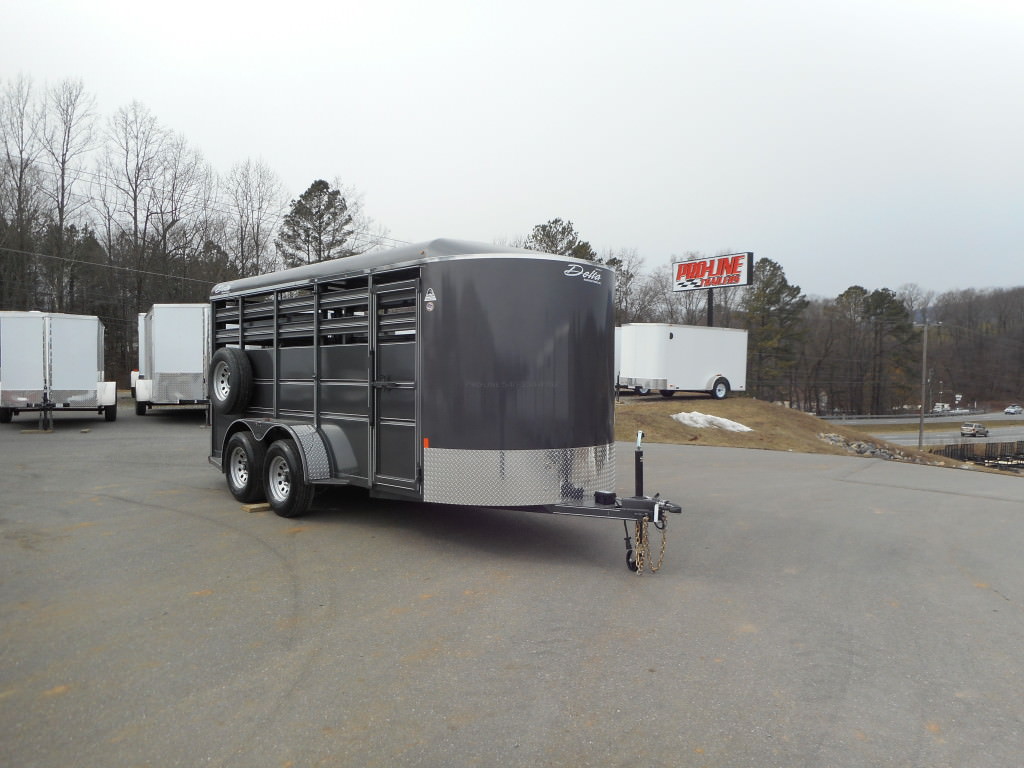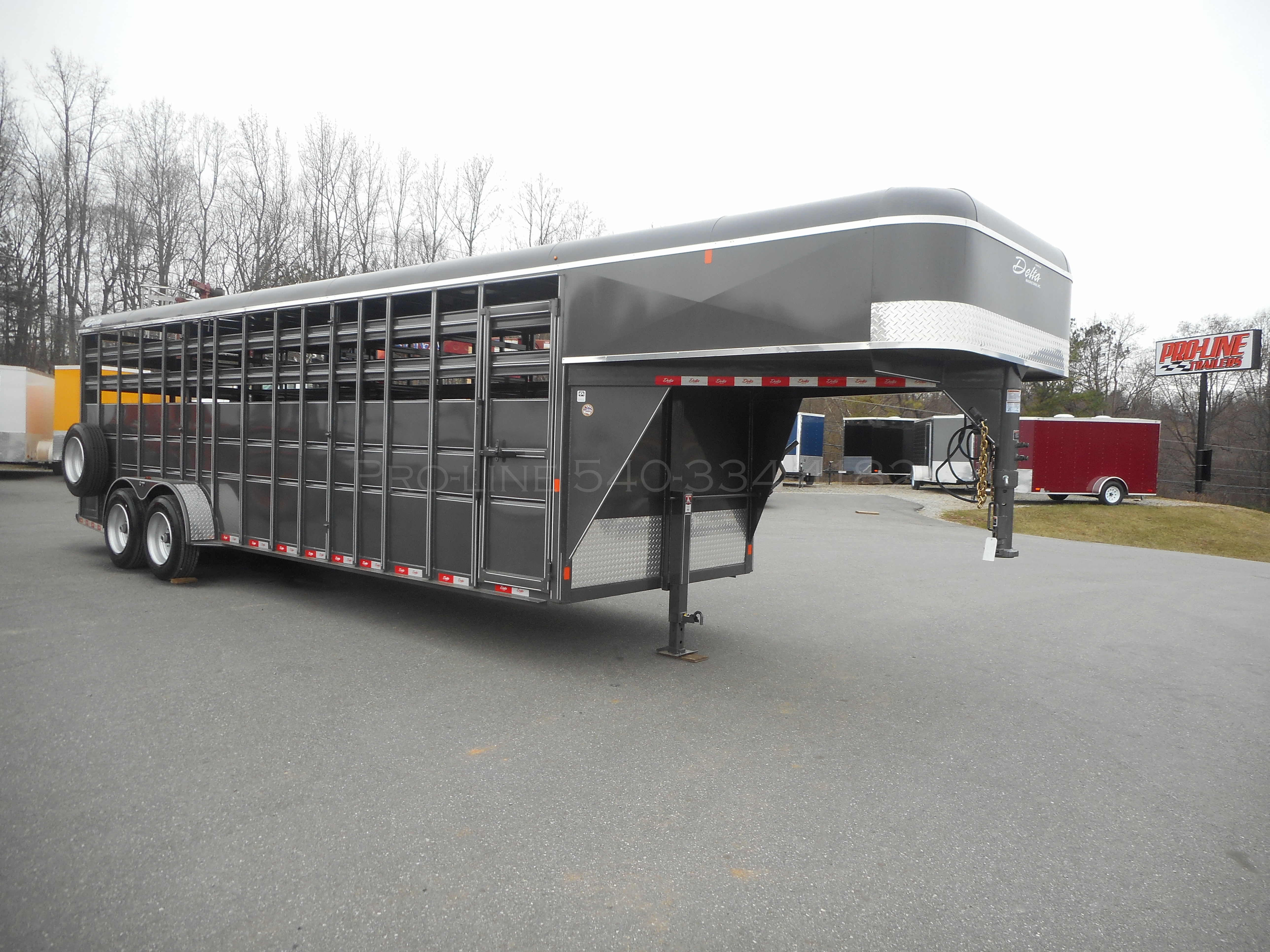How to Choose the Right Livestock Trailer
Have you heard of the Chisolm Trail? Cowboys used this historic route after the Civil War to move longhorn cattle over 1,000 miles from the plains of Texas to northern Kansas. The trail took a grueling three months to complete, and ranchers could expect to earn about 60 cents a head for their cattle.
Fast-forward to the 21st century, where we can make trips like this in hours instead of months. Thanks to the livestock trailer, moving cattle, horses, and other animals is easier than ever before.
The question is: What’s the best livestock trailer for your needs?
In this post, we’ll review the different types of livestock trailers so you can make an informed decision. Keep reading to learn more!
Types of Livestock Trailers
The two main types of livestock trailers are bumper pull or gooseneck. Each has its pros and cons, which we’ll discuss in more detail below.
Bumper Pull Stock Trailer

Also called a “tagalong,” bumper pull trailers are the most basic style of a livestock trailer. As the name suggests, they simply hitch up to the vehicle you’re using to tow the trailer.
Most bumper pull trailers are compact and lightweight. They’re ideal for hauling small horses, ponies, goats, and sheep over short distances. The trailer is also very easy to maintain, hook up, and maneuver, even with limited space.
This type of trailer is a good choice for animal owners on a tight budget or who lack the type of truck needed to pull a gooseneck trailer. Because they’re lightweight, bumper pull trailers get much better gas mileage than their heavier counterparts.
Although the compact size can be an advantage for some, it could be a disadvantage for others. For example, these trailers aren’t usually suitable for larger horses or cattle, or for transporting more than a few small animals. They also offer less stability than gooseneck trailers, which could stress your livestock on longer trips.
Gooseneck Stock Trailer

If you have many animals, larger animals, or both, you might be better off choosing a gooseneck style trailer. These vary in size but can stretch as long as 36 feet in length, giving you ample space to move livestock.
To haul a gooseneck trailer, you’ll need a pickup truck with a suitable truck bed hitch. This setup creates more stability and a smoother ride for you and your animals. Gooseneck trailers are ideal for hauling multiple animals long-distance, as it creates a safer and more secure environment.
Because they’re larger than bumper pull trailers, gooseneck trailers cost considerably more. The extra weight will also decrease your fuel efficiency during your travels. However, the extra space and ability to haul more animals could more than make up for the extra cost over time.
How to Choose a Livestock Trailer
Now that you’re familiar with the two main types of livestock trailers, how can you decide which one is better for you? Ask yourself these four questions and you’ll soon arrive at your answer.
1. What Type of Livestock Do You Haul?
The size and quantity of your livestock are two of the biggest factors in your decision. If you only need to move sheep, goats, pigs, or other small animals, a bumper pull trailer will probably suffice. The same is true if you’re moving one or two small horses or ponies.
However, what if you need to haul half a dozen horses to a show? What if you need to transport a dozen cattle to the stockyard? Unless you want to make multiple trips back and forth (and stress your animals in the meantime), you’re going to need the larger space of a gooseneck trailer.
2. How Far Do You Normally Travel?
Do you need to transport a few animals around town occasionally? Or do you need to haul them across the country or around a seasonal show circuit?
This isn’t to say you can’t use a bumper pull trailer for a longer trip or a gooseneck trailer for local travel. However, you should consider the amount and type of travel you’re most likely to do and make your decision based on that.
3. What Type of Material is Best?
Trailers come in a variety of materials that have a direct impact on how much they weigh. Here’s a quick overview of the most common types, along with their pros and cons:
- Aluminum: Lightweight, rust-resistant, and generally affordable
- Steel: Extremely durable and affordable, but very heavy and prone to rust
- Galvanized steel: Durable and rust-resistant, but with a heftier price tag
- Composite materials: Often strikes a good balance between durability and affordability
Of course, you always have to consider your budget, but you should never sacrifice the type of trailer you really need because of cost. Financing is available to ensure you can buy the best livestock trailer for your needs.
4. Do You Need Living Quarters?
Many gooseneck trailers come with a bonus feature of living quarters — a living space in the front portion of the trailer.
This could be as simple as a flat area for a small mattress and some extra storage space. Or it could be as extravagant as a full bedroom, bathroom, and kitchenette.
Although this feature understandably costs more, it could pay for itself over time. If you’re hauling livestock long distances and need to stop overnight, you won’t need to pay for hotel rooms. The same is true if you travel to equestrian shows — you’ll have built-in space to sleep, eat, and prepare for your events.
Where to Find the Best Livestock Trailer
You may be inspired by stories of the Chisolm Trail, but we bet you’re glad there are easier ways to move livestock nowadays.
Now that you know how to choose a livestock trailer, the only thing left to do is find one near you. If you’re on the East Coast, you don’t have to go far — we have you covered. Pro-Line Trailers offers affordable and top-of-the-line trailers for any budget. With trailer financing available on some models and delivery options, our mission is to make it as easy as possible to get the trailer you need.
At Pro-Line Trailers, we offer an array of new and used livestock trailers. View our current inventory of horse and livestock trailers or contact our Trailer Team for custom ordering, questions and more to find the perfect livestock trailer for your needs!

